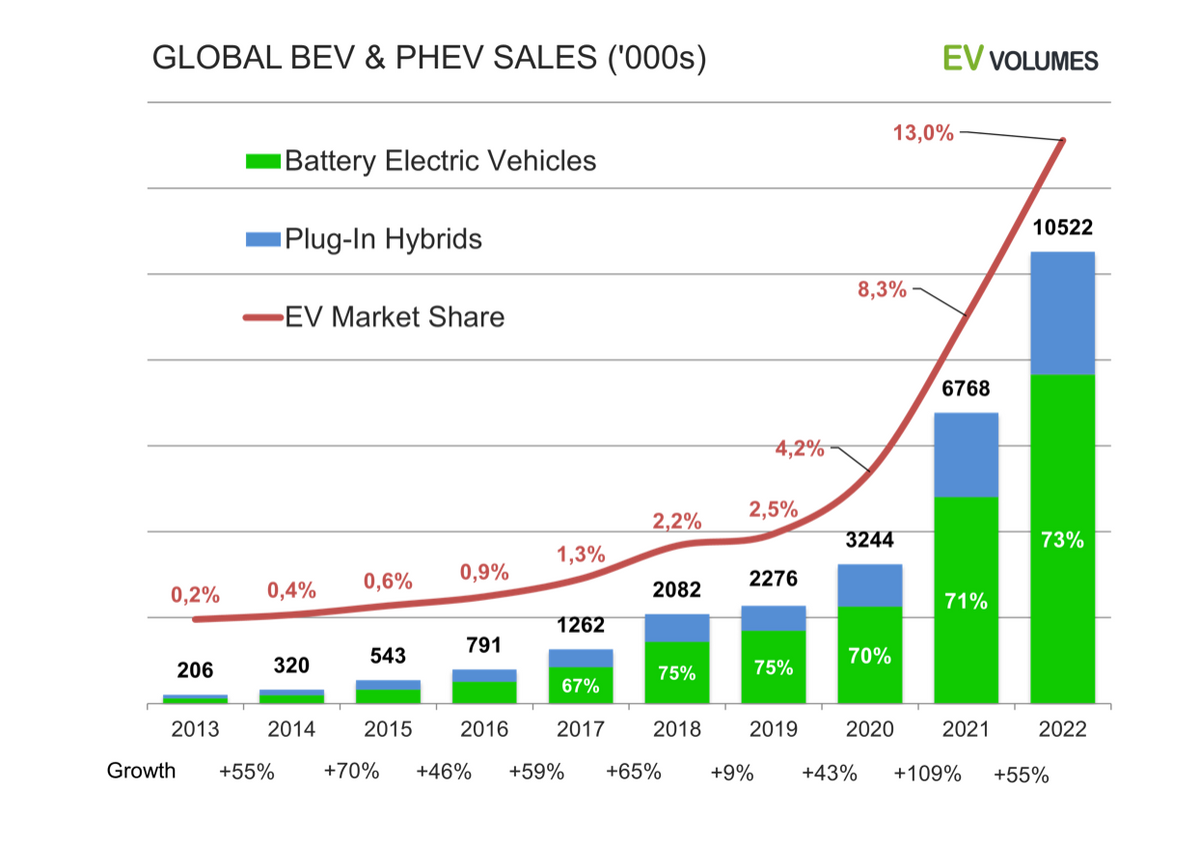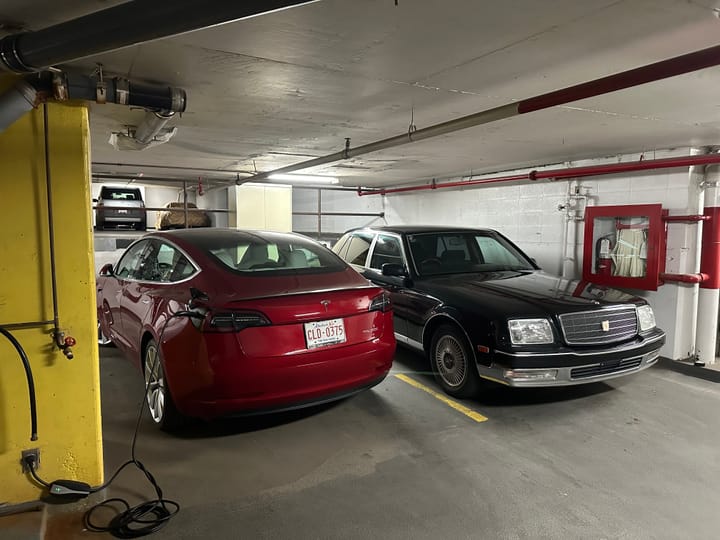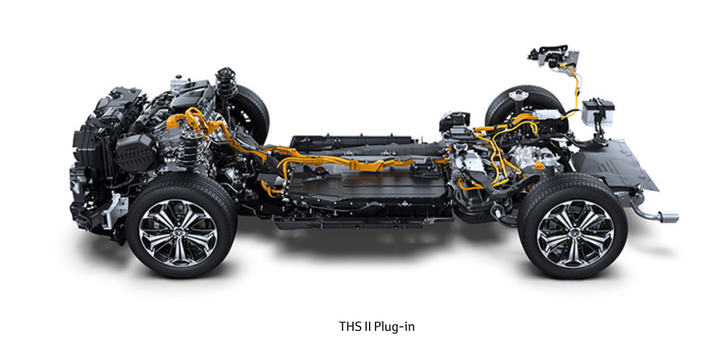Peak Combustion Engine Vehicle Sales?

I liked a recent quote from Bloomberg's Colin McKerracher that calling 'peaks' is generally a no-win endeavour, "the call will either be correct but seem obvious after the fact, or wrong and cause for years of mockery". That being said, he went on in his article of March 9, "Kiss Combustion Goodbye", that peak combustion-engine vehicle sales of 86M in 2017 will likely never be exceeded. By comparison, 2017 Battery Electric and PHEV vehicles amounted to 1M vehicles - just over 1%. In 2022 ICE vehicles were down to 69M, and electrified vehicles were up to 10.4M - about 12%.
Personally, I don't think I would have titled the article "Kiss Combustion Goodbye", as there were still 69M ICE vehicles and another 3M PHEVs sold in 2020 - 7 times the number of BEV's. And this doesn't include the 1.5B cars on the road globally, more than 95% of which run on fossil fuels. The title could have read, "1.4B vehicles on the road, and 87% of every new vehicle sold still uses fossil fuels!"
We currently use about 100M barrels of oil per day globally. Peak oil demand has been a hotly contested discussion, but most analysts see oil demand continuing to increase in the short term and levelling off at about 110M barrels per day later in the decade. One thing I think everybody can agree on is that the global demand for energy shows no sign of slowing down. Whether the increase in demand will be met with more fossil fuels or renewables probably has as much to do with politics as with science and industry, so predictions amount to a best guess.
Even with the almost complete shutdown of transportation in the spring of 2020, peak oil demand didn't drop below 80M barrels per day. Whatever your forecast for electric vehicle adoption and peak oil demand, it is clear that we will be combusting fossil fuels for quite some time.
So why then are so many of my Calgary friends and clients so vehemently opposed to Electric cars? Many are in the oil patch, but demand for oil isn't slowing down anytime soon. They never complained about the mining in the Congo, battery recycling or manufacturing in China when they bought their Li-ion powered hand tools or lap top computers. I don't understand the threat.
However... I can see how reading the headlines like, "Kiss Combustion Goodbye" would be irritating if I made my living providing natural gas to people so they could heat their homes in the winter or supplying aviation fuel so we can all travel. I can understand a wealthy person with several sprawling homes buying a Tesla and thinking they are saving the planet to be irritating (though I don't actually know anybody like that). I can see being irritated when manufacturers are saying they will be going 100% BEV, when there is no electric infrastructure to support a BEV anywhere but along the Trans Canada Highway - and even that doesn't work properly.
My own viewpoint is that Electric Vehicles are demonstrably better for commuting in every way, as long as you are keeping within a 100km radius of your home. In our case this is 90% of the driving we do. For the other 10% we rely on other vehicles, but they don't accumulate much mileage. We drive our Ionic 5 BEV whenever possible. When we need something larger, or need to travel longer distances, or need to tow our travel trailer, we take another vehicle.
Because of the inherent efficiency of an electric motor, a vehicle will travel 4 or 5 times as far using electrical energy compared to combusting fossil fuels. In Calgary, with premium gasoline being $1.70 per litre, and a kWh costing $.13 (depending on your electricity plan), the cost of driving a combustion engine vehicle is 5 to 10 times more than an electric vehicle. It just makes sense do propel your car with electricity rather than fossil fuel, as long as you have convenient charging.
In Alberta, at this time, if you have to rely on the DC Fast Charge infrastructure, the choice to buy a BEV is not as clear. If you don't have access to convenient charging or need to drive longer distances, A PHEV may very well be a better option, especially if you have a one-vehicle household.
The point is that we shouldn't waste fossil fuel when there is a better alternative - it is non-renewable after all. Save oil for when we need its energy density for aircraft or driving in places where electric infrastructure is impractical. If we can use electricity to power our cars, especially if some of it comes from renewables, why not do it?
There is no battery electric solution to long distance air travel at this time. There is an extremely marginal business case for building up $500,000 Level 3 DC Fast Charging stations every 100km on every highway in Alberta, most of which have almost no traffic. Our future, at least for the next 20 years, is going to be one where we use fossil fuels and renewables, to power combustion and battery electric vehicles.
The issue to switch to EVs has become political and divisive. There is no 100% clean energy - it is a dirty business in all of its forms. Our consumption - of all things - uses up the planet's resources. The wealthier we are, the more we are apt to consume. We are not going to save the planet by buying a $100,000 electric car. That all said, keep an open mind: If there is a better tool, and a smarter choice, don't let a journalist from Bloomberg dissuade you!

Lawrence Romanosky is a 'car guy' running a classic and specialty car repair, restoration and brokerage business out of Calgary Canada.
Lromanosky@me.com 403-607-8625



Comments ()